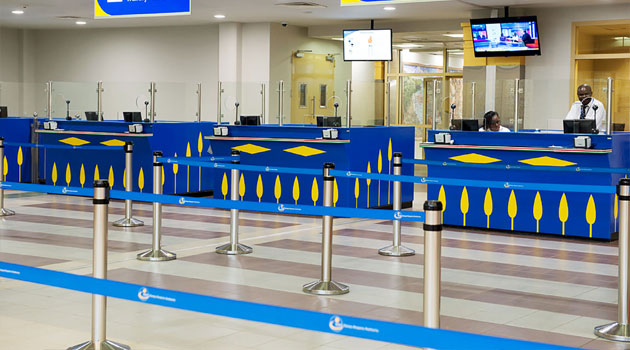Kenya’s busy airports are today experiencing unusual scenes as passengers struggle with delays and confusion caused by a strike by aviation workers.
Long queues at check-in counters, frustrated travelers missing connecting flights, and airlines forced to reschedule departures reflect the reality on the ground.
Despite official statements from the Kenya Airports Authority claiming that operations remain normal, the situation at Jomo Kenyatta International Airport, Wilson Airport, Moi International Airport, and other facilities tells a very different story.
The strike, led by the Kenya Aviation Workers Union, is rooted in years of unresolved grievances. Workers argue that the government has consistently ignored their demands, leaving them with little choice but to take industrial action.
At JKIA, some passengers have been stranded for hours as ground staff fail to turn up for duty. At Wilson Airport, where hundreds of domestic and regional flights operate daily, missing ground support has led to disorganized boarding processes and sluggish service.
Airlines have had to bear additional costs, including penalties for delays, while passengers face uncertainty and disrupted travel plans.
One of the main complaints raised by the workers is the issue of job security. More than 500 employees remain stuck on short-term contracts despite repeated promises of permanent and pensionable terms.
Others who were due for promotions have not received official confirmation, leaving them demoralized and financially disadvantaged. The union says this lack of action from the government has left many workers feeling undervalued and exploited.Unpaid overtime has added to the discontent.
At Wilson Airport, workers claim they have gone for half a year without being paid for extra hours. Ground staff, who already endure long shifts to keep Nairobi’s busy domestic air traffic running, say they have been pushed to the limit.
For many of them, the strike is a desperate attempt to draw attention to their plight after months of being ignored.
Another sensitive matter is the planned transfer of the Ground Flight Safety department from the Kenya Airports Authority to the Kenya Civil Aviation Authority.
Workers fear this change will leave hundreds of staff without jobs and strip KAA of critical revenue streams. Aviation experts warn that such a move could also weaken safety oversight at the country’s main airports, making the decision both risky and controversial.
The impact of the strike is being felt most by passengers and airlines. Families traveling for personal reasons, business professionals heading to meetings, and tourists hoping to connect to different destinations all find themselves facing missed flights and unexpected costs.
Airlines, already operating under high expenses, now risk further financial losses and reputational damage.
The situation poses deeper challenges in Kenya’s aviation sector. What is unfolding is not simply a dispute between workers and management but a sign of poor leadership and failure to prioritize the welfare of staff who play a vital role in keeping the industry running.
Unless the grievances are resolved quickly, the disruption may worsen, harming Kenya’s image as a regional hub for air travel.





















Add Comment